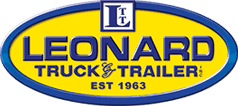-
 Horse Trailers
Horse Trailers -
 Livestock Trailers
Livestock Trailers -
 Equipment Trailers
Equipment Trailers -
 Car Haulers
Car Haulers -
 Toy Haulers
Toy Haulers -
 Dump Trailers
Dump Trailers -
 Cargo
Cargo -
 Snowmobile
Snowmobile -
 Utility Trailers
Utility Trailers -
 Semi / Equipment Trailers
Semi / Equipment Trailers -
 Fiber Optic Trailers
Fiber Optic Trailers -
 RV & Travel Trailers
RV & Travel Trailers -
 Bob's Custom Saddles
Bob's Custom Saddles -
 Skid Steer & Tractor Attachments
Skid Steer & Tractor Attachments -
 Golf Carts
Golf Carts -
 Vehicles
Vehicles -
 Humvees
Humvees -
 Machinery / Tractors
Machinery / Tractors -
 Equipment / Accessories
Equipment / Accessories -
 Patio Furniture / Awnings
Patio Furniture / Awnings -
 Parts
Parts -
 Smokers / Grills
Smokers / Grills
Common Routine Maintenance Requirements for Horse Trailers
Regular maintenance is crucial for keeping your horse trailer safe and in good condition. Here are some of the most common routine maintenance requirements for horse trailers:
 Cleanliness: Regularly clean the interior and exterior of your horse trailer to remove dirt, debris, and manure. This helps prevent the build-up of corrosive substances and maintains a sanitary environment for your horses.
Cleanliness: Regularly clean the interior and exterior of your horse trailer to remove dirt, debris, and manure. This helps prevent the build-up of corrosive substances and maintains a sanitary environment for your horses.
Structural Inspection: Conduct a thorough visual inspection of the trailer's structure, including the frame, floors, walls, and roof. Look for signs of rust, corrosion, cracks, or damage. Pay close attention to high-stress areas such as the hitch, axles, and suspension components.
Tire Maintenance: Inspect the trailer's tires for signs of wear, cracking, dry-rotting, or uneven tread wear. Check the tire pressure regularly and ensure they are properly inflated according to the manufacturer's recommendations. Rotate the tires periodically and replace them when necessary.
Brake System: Check the trailer's braking system, including the brakes, brake lines, and brake controller (if equipped). Ensure that the brakes are functioning properly and adjust or replace any worn-out or damaged components as needed.
Electrical System: Inspect the trailer's electrical system, including the lights, wiring, and connectors. Test all the lights to ensure they are functioning correctly, including the brake lights, turn signals, and running lights. Repair or replace any faulty wiring or bulbs.
Floor Maintenance: Regularly inspect the trailer's flooring for any signs of wear, rot, or damage. Ensure the floor is structurally sound and free from any weak spots. Clean the floor thoroughly, removing any manure, shavings, or debris.
Coupler and Hitch Inspection: Check the trailer's coupler and hitch mechanism for any signs of wear, damage, or loose connections. Ensure that the coupler is securely latched and that the safety chains are in good condition.
Ventilation: Check the ventilation system of the horse trailer, including windows, vents, and fans. Ensure proper airflow to keep the interior comfortable for the horses and prevent condensation and mold growth.
Emergency Preparedness: Check the condition of emergency equipment, such as fire extinguishers, emergency exits, and first aid kits. Ensure that they are easily accessible and in good working order.
Lubrication: Lubricate moving parts, such as hinges, latches, and ramps, to ensure smooth operation and prevent rust or corrosion.
Wheel Bearing Maintenance: Grease or repack the wheel bearings at regular intervals to ensure proper lubrication and prevent bearing failure.
Safety Checks: Test the trailer's safety features, including the breakaway system, emergency brakes, and trailer brake battery (if applicable). Verify that they are working correctly and are following local regulations.
It's important to consult your horse trailer's owner's manual for specific maintenance guidelines and recommended schedules. Additionally, consider having your horse trailer professionally serviced at Leonard Truck and Trailer at regular intervals to ensure comprehensive inspections and any necessary repairs or maintenance tasks are properly addressed.
Winterization: RVs and Living Quarter Trailers need to be winterized to protect the plumbing and other systems from damage caused by freezing temperatures. Here are the key reasons:
-
Preventing Burst Pipes: Water left in the plumbing system (pipes, tanks, and pumps) can freeze, expand, and cause pipes to burst or crack. Winterizing involves draining water and adding antifreeze to prevent freezing.
-
Protecting Water Heater and Tanks: The water heater and holding tanks (freshwater, gray, and black water tanks) are vulnerable to freezing. Winterizing ensures they are drained or treated with antifreeze to avoid damage.
-
Maintaining the Water Pump: The water pump can be damaged by frozen water inside it, which winterizing helps prevent.
-
Safeguarding Appliances: RV appliances like the fridge, washing machine, and toilet also have water lines that can freeze and break if not properly winterized.
-
Cost Avoidance: Repairs from freeze damage can be expensive, making winterizing a cost-effective preventative measure.
Winterizing prepares an RV for cold weather storage, ensuring it remains in good condition until the next season.
By using leonardtrailers.com you consent to the monitoring and storing of your interactions with the website, including with a Leonard Truck & Trailer, Inc. vendor, for use in improving and personalizing our services.
*Please Note: Our inventory changes daily, please check with us to confirm trailer, vehicle, attachments, and parts availability. Every reasonable effort has been made to ensure the accuracy of the information contained on this site, absolute accuracy cannot be guaranteed. This site, and all information and materials appearing on it, are presented to the user "as is" without warranty of any kind, either express or implied. All inventory is subject to prior sale. Price does not include applicable tax, title, license, registration, and documentary fees.
Privacy Policy | Financial Privacy Policy | Interest-Based Ads | Terms of Use | Responsible Disclosure | Accessibility | Feedback Copyright © 2025 Leonard Truck & Trailer, Inc.
